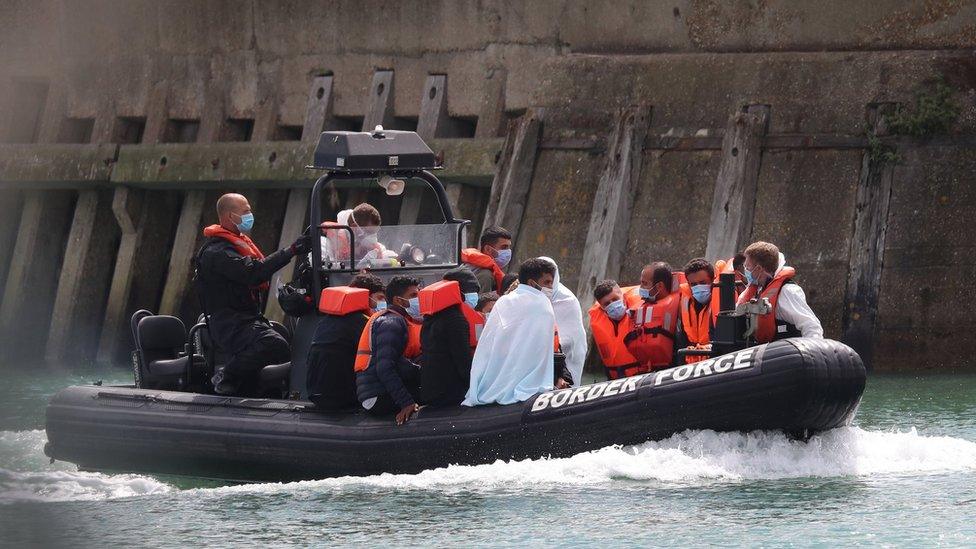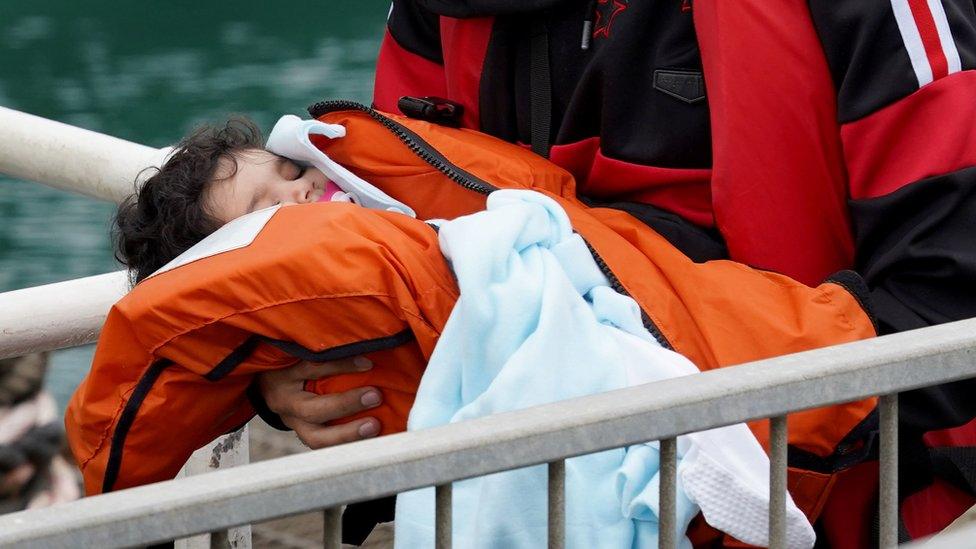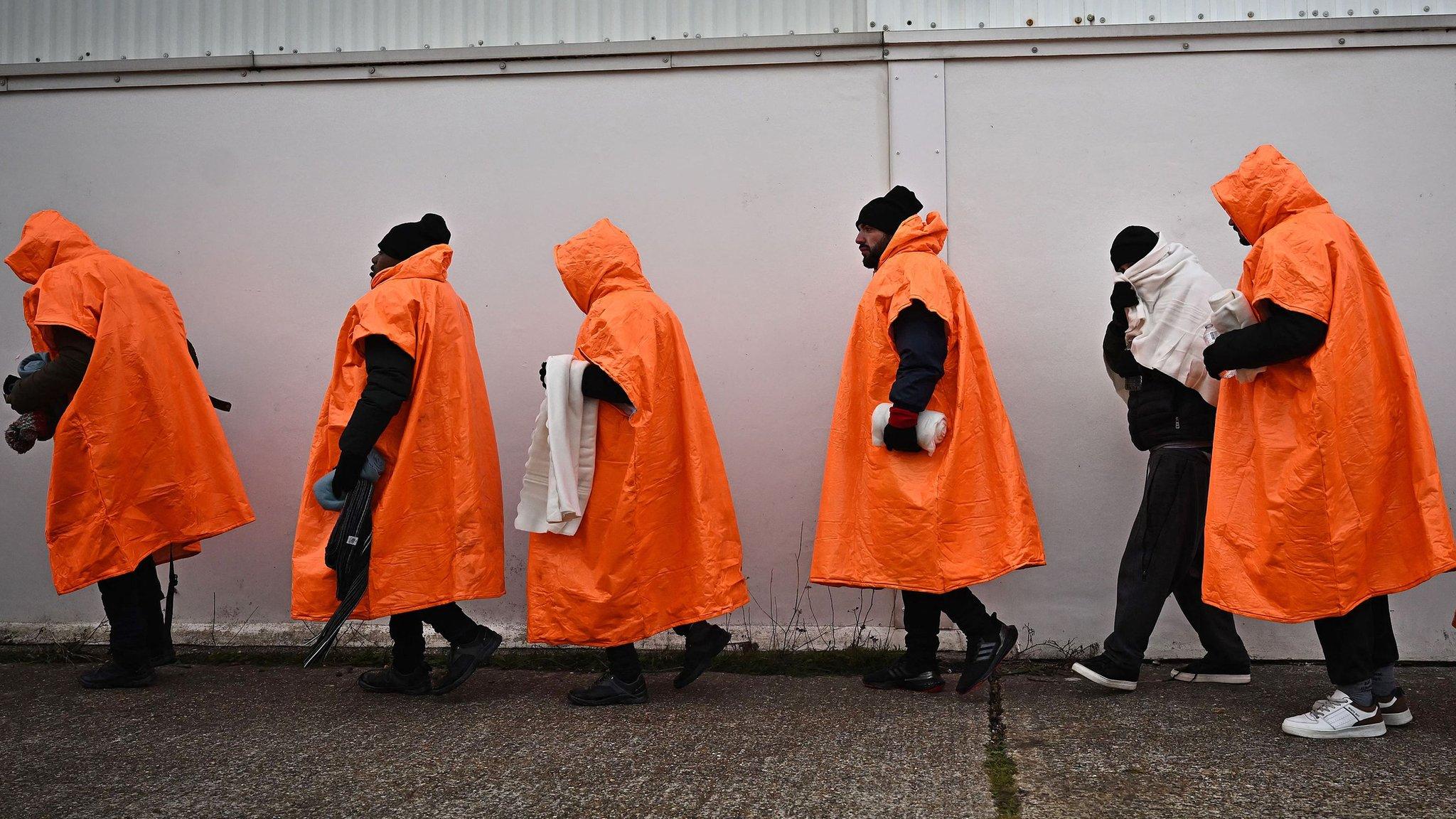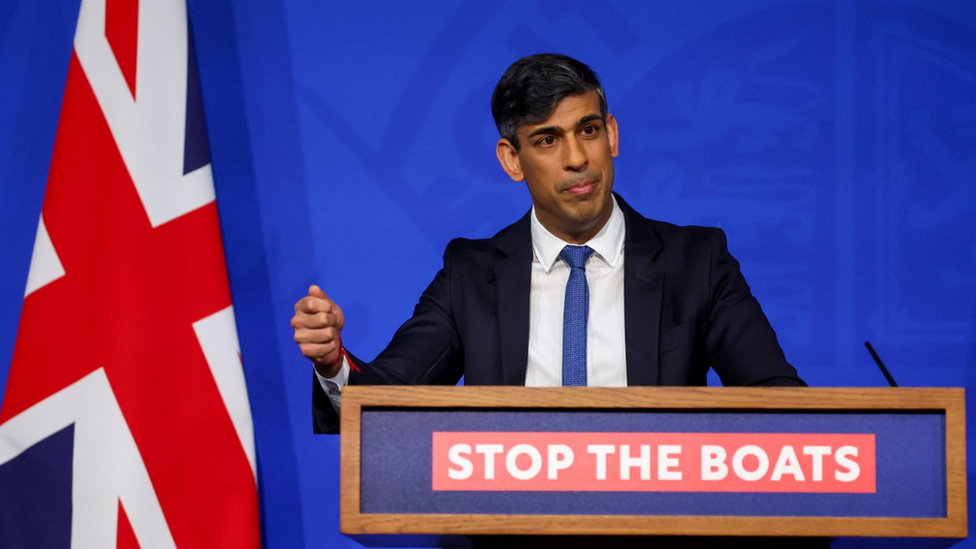Only 21 foreign nationals removed from UK under post-Brexit asylum rules
- Published

Only 21 foreign nationals have been removed from the UK under post-Brexit "inadmissibility" rules on asylum, Home Office figures show.
Since the UK formally left the EU last year, asylum seekers who arrive from a "safe third country" can be returned.
Overall, there were 63,089 asylum applications in the 12 months to June, the highest in 19 years.
The figures coincide with a proposal to fast-track removals of Albanians who cross the Channel in small boats.
An agreement with the Albanian government is expected next week to allow its police to be stationed at ports in Kent.
The officers will not be armed, as is usual in their home country.
Brexit rules
Since 1 January 2021, asylum seekers whose claims are deemed inadmissible can be removed under new tougher rules.
During that period, more than 17,000 asylum claimants were identified for consideration.
Of those, almost 16,000 were served with "notices of intent", warning of possible removal.
However, Home Office figures published on Thursday show only 83 individuals were subsequently ruled as inadmissible for asylum.
Of those, 21 people have so far been returned to Denmark, Germany, Ireland, Italy, Slovenia, Spain, Sweden and Switzerland, but none to France.
The Home Office does also forcibly return foreign criminals and others in breach of their immigration status. In the year ending March 2022, there were 3,231 enforced returns - 55% fewer than in 2019 pre-pandemic and a far lower number than the 15,000 seen back in 2013.
The 2022 figure of 63,089 asylum applications is 77% more than in 2019, before the start of the pandemic, and also higher than during the 2016 European migration crisis, which saw 36,564 applications.
However, it is not as high as the 2002 peak of 84,132 applications.
Albanian arrivals
UK officials believe Albanians could make up 50-60% of small boat arrivals.
Thursday's figures show 1,727 Albanian arrivals in May and June, with estimates of about 5,000 altogether this year.
This is a sharp rise on the 898 Albanians who crossed the Channel between 2018 and 2021.
The proportion of Albanians granted refugee status stands at 53%, Thursday's figures suggest.
The BBC understands that while it is possible to prioritise the asylum claims of Albanians so they can be removed if they are not deemed to be entitled to asylum, no decision has been taken to do so.
The Home Office said Albania is a "safe and prosperous country" and some nationals "are travelling through multiple countries to make the journey to the UK" before making "spurious asylum claims".
Overall, the figures show 2,066 small boat arrivals between January and June, including increasing numbers of Afghans who could be selected for removal to Rwanda.
The Home Office is already dealing with a record asylum backlog, the figures show, with:
117,945 asylum seekers awaiting an initial decision, more than double the 2019 figure
166,085 cases described as "work in progress", awaiting a final decision
Officials say smuggling gangs have increased the price of crossings and are enticing children and disabled people into increasingly overcrowded boats. On average there are 44 people on-board, up from 28 last year.

Children were among those who crossed the English Channel in small boats on Monday
A Home Office source said it was "remarkable" there had not been any "horrendous incidents" in the Channel over the summer.
Ministers turned down a BBC interview request but, in a statement, Minister for Illegal Migration Simon Baynes said the significant increase in small boat crossings "continues to pressurise the UK's asylum system and our ability to make timely casework decisions".
"Anyone who is travelling through safe countries to reach the UK should claim asylum there instead of giving money to evil criminal gangs."
Mr Baynes said government plans, including the Rwanda partnership, would "fix the broken system, crack down on those who enter illegally and allow us to support those in genuine need".
- Published13 December 2023

- Published13 June 2024
